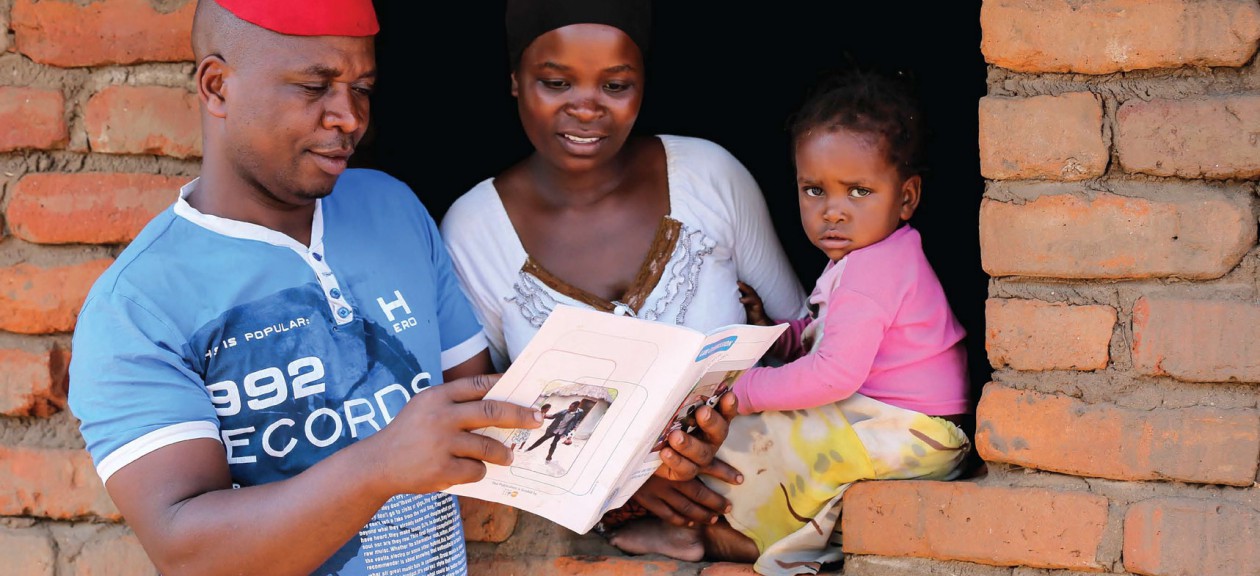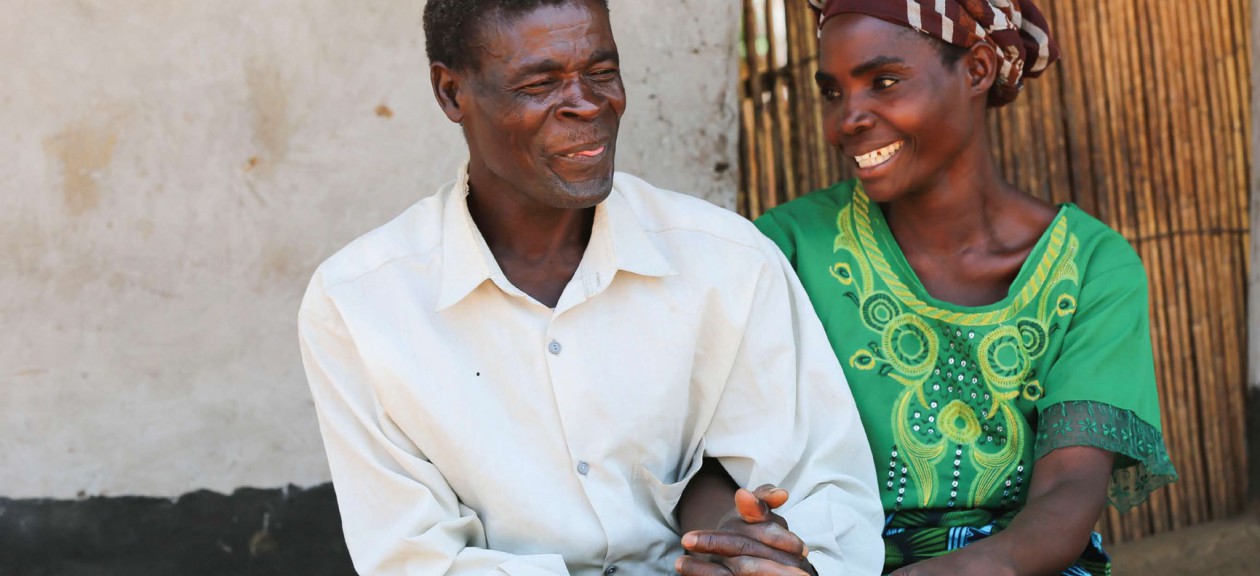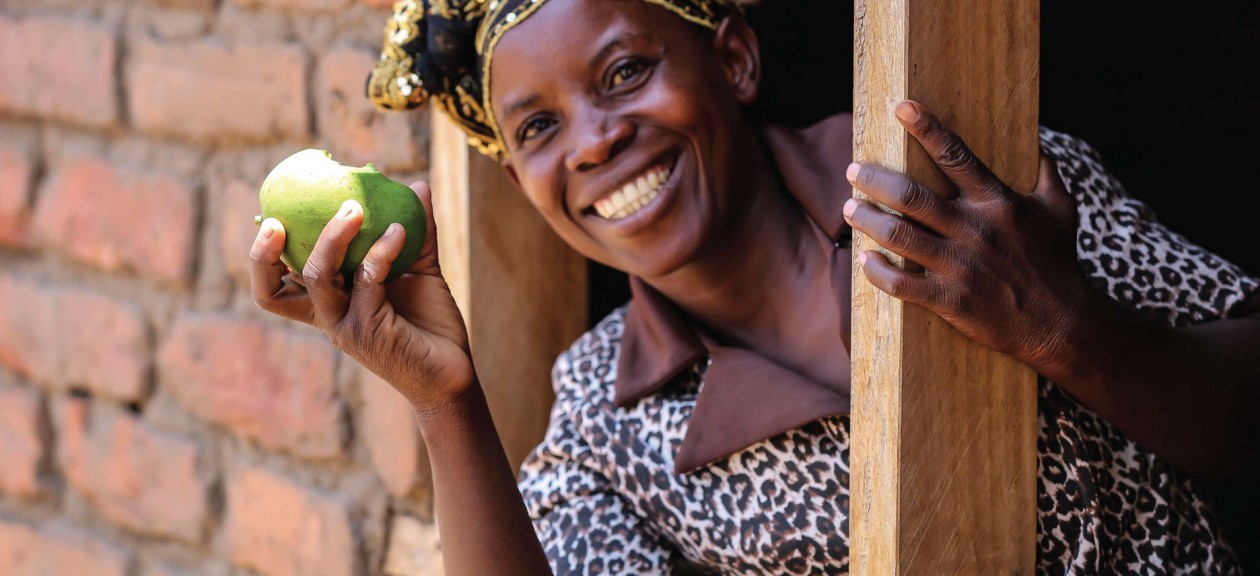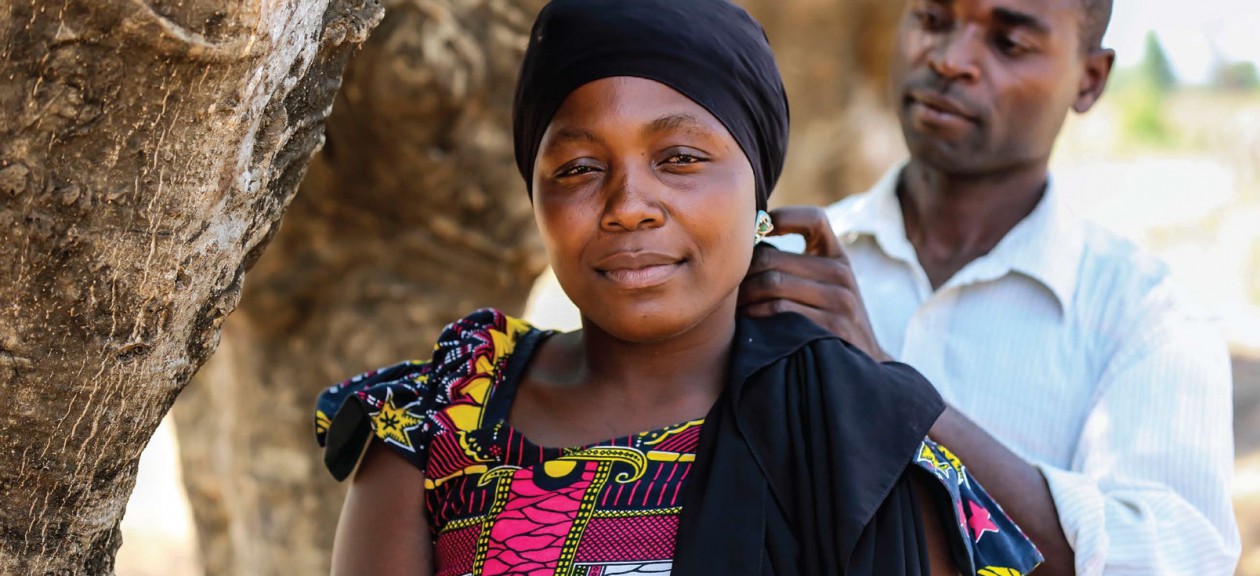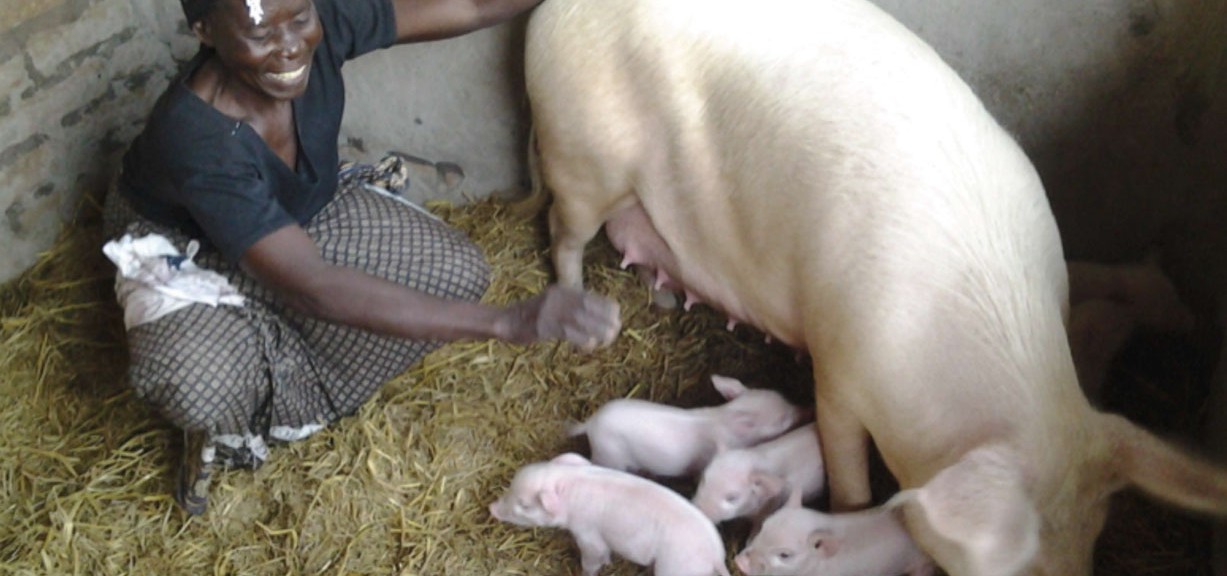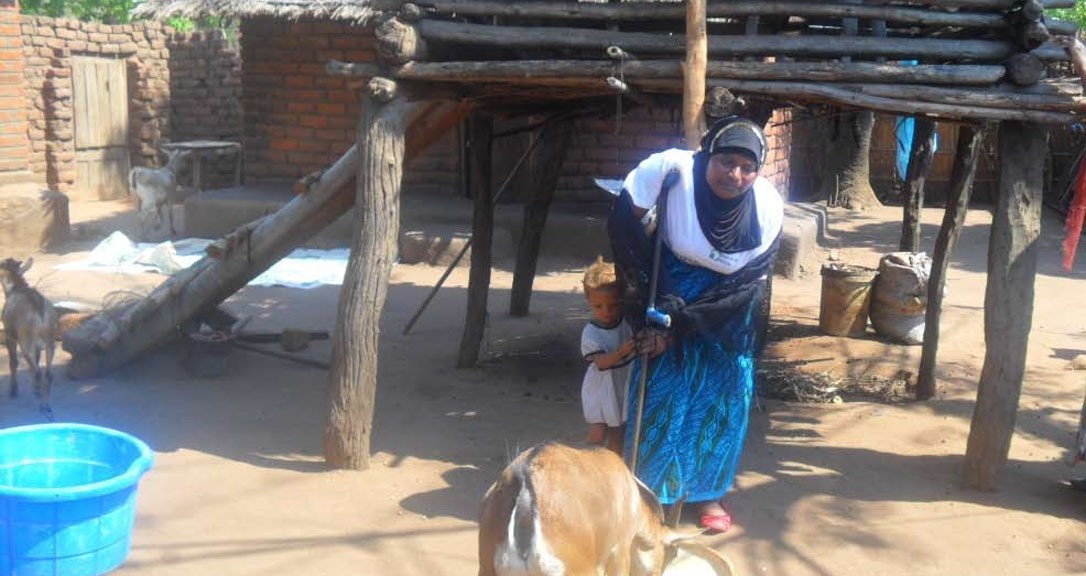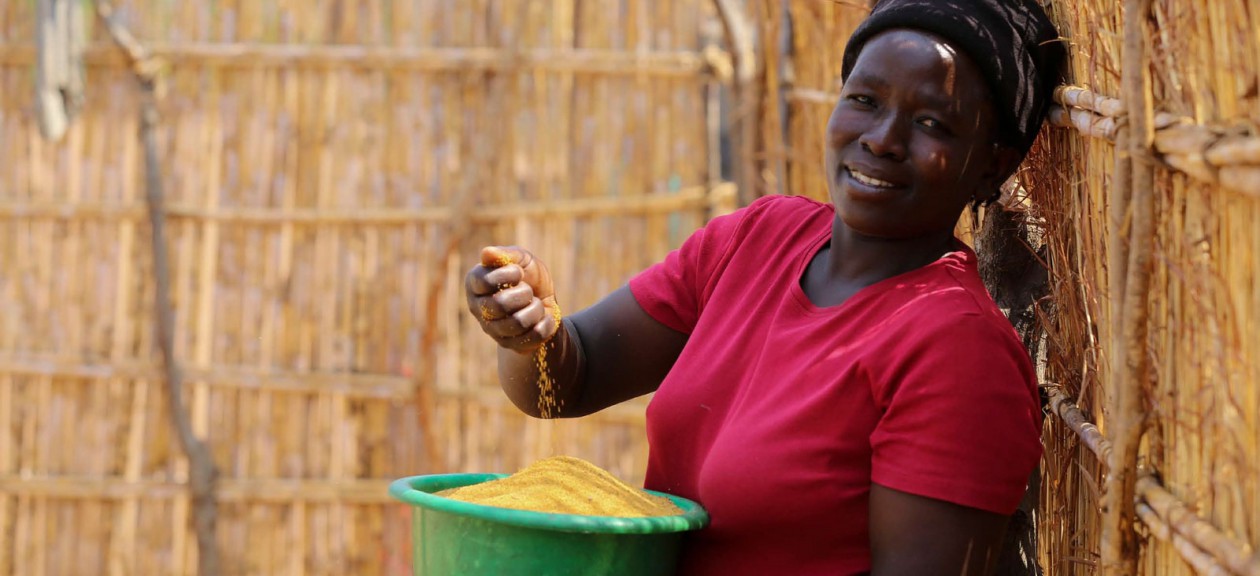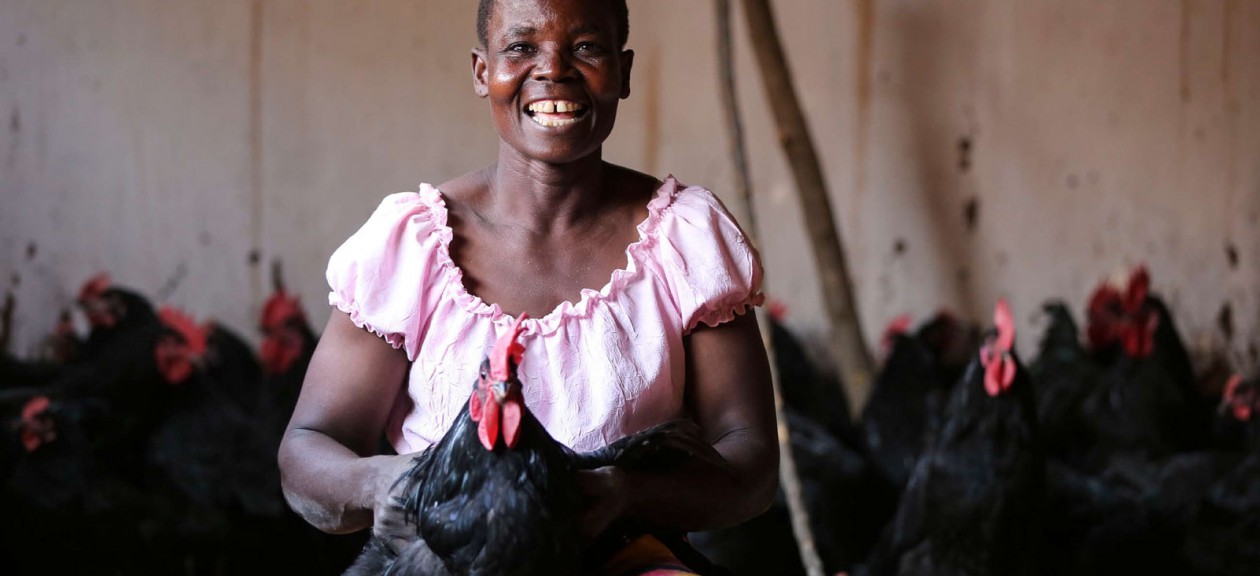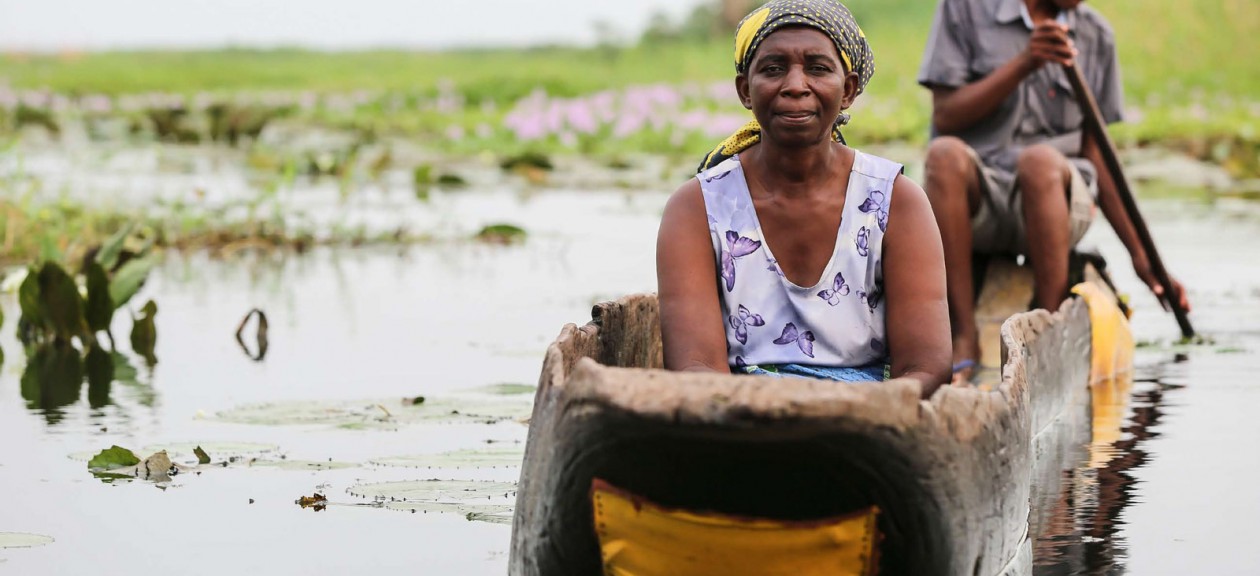Duniya Mike, is 25 years and lives in Chindungwa village in the Salima District. She has three children, one boy and two girls aged between six months and seven years. She married her husband Mike in 2007. Duniya describes that period as one of hardest moments in her life: “He was hitting me, and when he had money he spent that money on other ladies. During my first pregnancy, I told him we should go to the hospital together for a HIV test but he refused and was very angry with me.”
In 2011, MIAA (Malawi Interfaith Aids Association) with Trócaire support, implemented a program called “Tiyeni Tisinthe, Together Let’s Change”, in Salima. The programe aims to reduce women’s vulnerability to HIV infection through gender transformative interventions and the elimination and modification of harmful cultural and religious practices. Mike was approached in 2012 to participate in training on gender and HIV. Within a few months of his attendance, Duniya began to notice real changes. “When he came from the training, he shared with me what he had learnt there. He doesn’t hit me anymore, he is a different man. Before, he would spend all the money with other girls but now he brings the money home and we sit together to make a proper budget.
“Nowadays, I am a happy woman. He helps me at home because with 3 children is not easy. I feel he is the man I fall in love. I have him back, thanks to MIAA.”
- This case study was prepared as part of the Gallery Exhibition to commemorate the visit of the President of the Republic of Ireland, His Excellency Michael D Higgins to Malawi in November 2014, and later to coincide with the launch of the 16 Days of Activism against GBV on November the 25th, 2014.
- Pictures taken by: Chipiliro Khonje.
